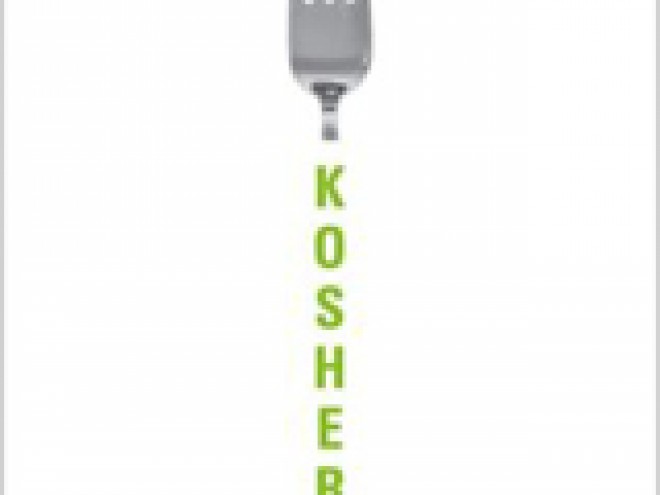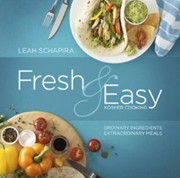To paraphrase a catchy advertisement for Levy’s rye bread,“You don’t have to be Jewish to eat kosher food!” There are ten thousand companies producing kosher food in the United States alone. These companies make more than 135,000 kosher products for over twelve million consumers, reports Timothy D. Lytton in his delightful book, Kosher: Private Regulation in the Age of Industrial Food. The American kosher market generates more than twelve billion in annual retail sales and more products are labeled kosher than are labeled organic, natural, or premium. Only eight percent of kosher food consumers are religious Jews. Others include those who believe kosher foods are safer, tastier, and truly vegetarian, lack lactose, and conform to Halal, Islamic dietary restrictions.
The kosher food industry wasn’t always so successful. Fraud and corruption plagued kosher meat production in the United States from the mid-1800s to the mid-1900s. In 1925, the New York City Department of Markets estimated that 40 percent of the meat sold as kosher in the city was not kosher. The industry was also notorious for price fixing and racketeering. That has all changed. The transformation of the industry has been so successful and dramatic, Lytton persuasively argues, that it can now serve as a “model of success” of private regulation to be emulated by other industries seeking improvement in such areas as food safety or organic product labeling. Today, the certification system ensures that food labeled “kosher” is actually kosher. Lytton argues that the system has “accomplished this by developing a market structure that aligns the financial incentives of certifiers and companies with the interests of kosher consumers.”
Kosher: Private Regulation in the Age of Industrial Food is not an academic tract arguing for private over public regulation. Nor does it argue for or against eating kosher food. The book provides a fascinating, meticulously documented how-to narrative explaining the actual mechanics of “industrial kashrus,” its standards, administration, and self-regulation set in the context of Jewish social history and religious practice. He identifies many of the key actors in the process, including the mashgiachs (professional who oversees kosher food preparation), shochets (professionals qualified to perform kosher slaughter), and the specific kosher certification industries in the field.
An example of the interesting information woven into the book is Lytton’s account of the development of the “Kof‑K” kosher certification developed by Harvey Senter. Senter grew up in Brooklyn , attended Yeshiva University, where he earned a BA in 1958, rabbinic ordination in 1961, and a PhD in mathematics in 1963. He became an assistant professor of mathematics at Fairleigh Dickinson University, taught math as an adjunct professor at Yeshiva University, and volunteered as a congregational rabbi. As a hobby he did informal research on kosher foods and was particularly interested in the issue of flavors. He called companies to get information about their manufacturing processes. Senter compiled this information into a booklet, Guide to Kashrus, in his role as the faculty advisor to Yeshiva University’s student magazine. In the 1960s a marketing executive from Howard Johnson, one of the companies he had researched, hired him to provide kosher certification for its ice cream. Senter agreed and hired trustworthy individuals to inspect Howard Johnson’s ice cream plants in Miami, Baltimore, and Brocton, Massachusetts. With its hiring of Senter and his staff, Howard Johnson ice cream became the first product certified by Senter. Howard Johnson, itself, started as a small corner drugstore in that sold ice cream at its soda fountain in Wollaston, Massachusetts in 1925. By the 1960s it was America’s largest and best-known restaurant, hotel chain, and ice cream manufacturer.
In the early years of Kof‑K, Senter did presentations before Jewish groups throughout the country demonstrating his knowledge and expertise in food technology and his rigorous level of personal observance. Senter knew that to succeed, kosher certifying agencies must develop a reputation among consumers for reliability and trustworthiness. For, as Lytton writes, “Kashrus certification is not only a business. It is also a religious mission.” Senter realized that for large food companies that produce non-meat edibles, kosher certification is a highly attractive and relatively inexpensive marketing strategy. Senter now heads one of the largest kosher certification agencies in the United States , Kof‑K, whose staff of 150 certifies nearly two hundred thousand products manufactured by 900 companies worldwide.
Lytton doesn’t avoid the latest controversies in the field. Appendixes include discussions of the “controversy over OU dominance of Kosher meat,” anti-trust concerns (the big five kosher certification services control eighty percent of the market); ethical kashrus, and the Iowa slaughterhouse scandal. Agriprocessors, the largest kosher meat-production facility in the United States, located in Postville, Iowa, was charged with animal cruelty, labor exploitation, environmental degradation, and financial irregularities. In 2009, Agriprocessors CEO Rabbi Sholom Rubashkin was criminally convicted of several of those charges.
You need not be a “foodie,” a rabbi or even eat kosher food to enjoy the book. Lytton has succeeded in making a book about an ordinarily dull topic, kosher certification of food, into a riveting social history of the American Jewish experience and entrepreneurial genius.
Timothy D. Lytton is the Albert and Angela Farone Distinguished Professor of Law at Albany Law School. Appendixes, glossary, index, notes, tables.




